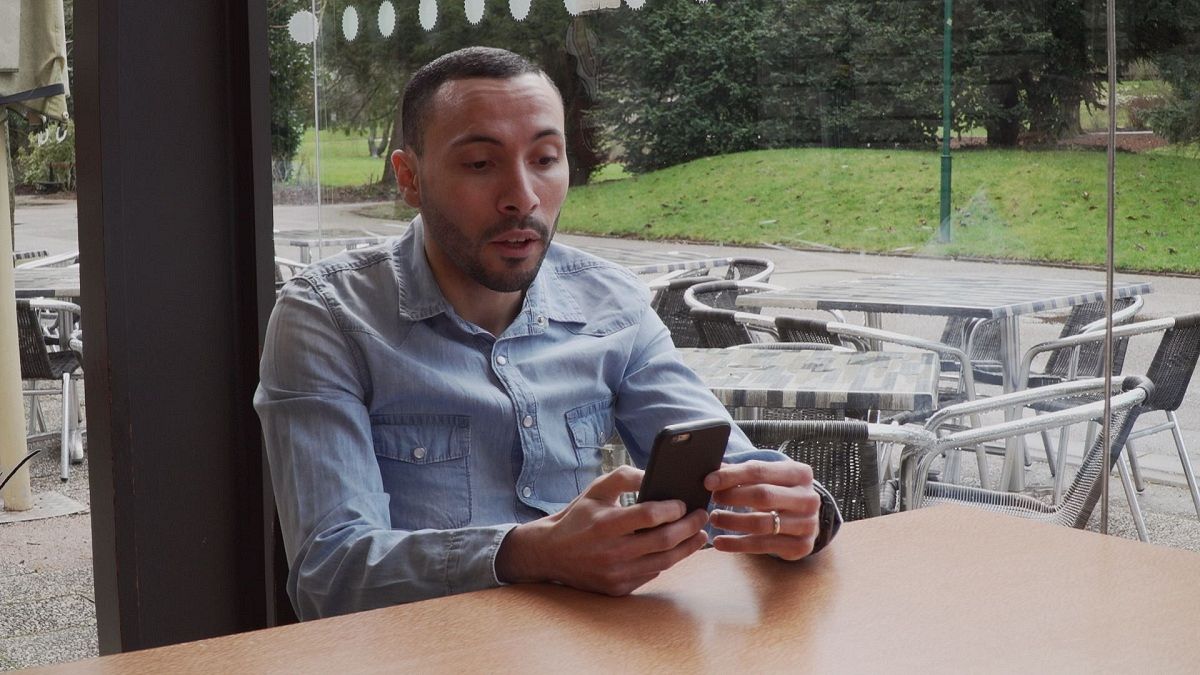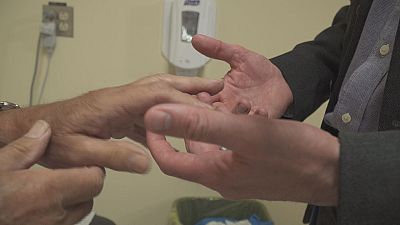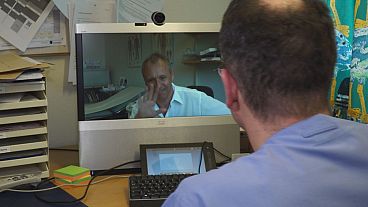The healthcare sector is undergoing a digital transformation, and patients like Ahmed Belabbes are at the frontline. The 28-year-old Frenchman has
The healthcare sector is undergoing a digital transformation, and patients like Ahmed Belabbes are at the frontline.
The 28-year-old Frenchman has Crohn’s Disease, a chronic bowel disorder, and uses a new smart phone application to record and share details about his illness with his doctor.
“Feeling great, feeling OK, tired, very tired, or exhausted. And then it’s for us to judge according to the state we’re in at the time,” Ahmed says, describing how data about his condition is gathered in the app.
“Then also the number of stools per day, if you have a temperature, your weight. And when you validate it everything is sent to (doctor) Professor Peyzin-Biroulet, who can look at it directly from home.”
That means that when Ahmed meets up with Professor Laurent Peyrin-Biroulet at University Hospital in Nancy, the doctor already has a wealth of digital data about him.
“Rather than him waiting to see me or to call me, to see me one week, two weeks, or one month later – because having diarrhoea and stomach pain for three weeks isn’t nice,” says Peyrin-Biroulet, “the patient can contact us as soon as things go wrong, and we’ll take action.”
The doctor continues: “So we’ll act early, give them the treatment they need, and avoid that inflammation of the intestine, which develops and ends up damaging or destroying the patient’s intestine. So there are many advantages.”
To get a second opinion on the advantages and challenges of this digital shift, Smartcare visits the headquarters of the French National Medical Council in Paris.
Vice President of the Council, Dr Jacques Lucas, is a great proponent of digital innovation in healthcare.
Yet with so many smart phone applications now being developed, he argues the case for strict regulation.
“We think that applications should be prescribed by the doctor: it should be used in an official framework,” Lucas stresses.
“So you use the application three times a week, or three times a day, depending on what you want to measure, and the rest of the time you leave it in your pocket.”
If smart phone applications are to be integrated into public healthcare systems they also need to answer questions about security.
Back in Nancy, we meet Muriel Veltin, who briefs patients on how to share sensitive medical information with their doctor.
“If he is face to face with the doctor it will be via a code that the doctor should enter within 15 minutes, and if he shares via e-mail it’s the same, it should be opened within 72 hours. It’s only the doctor that can look at the data that the patient has entered and wants to share,” she says.
For Ahmed, good patient-doctor dialogue is all about trust, be it face to face, or online.
“I start from the idea that if you want to be well cared for, then the doctor needs to have access to all the data, that there are no taboos, otherwise there’s no interest, no interest at all,” he says.
The digital shift is here, but patients should always be able to choose to what extent they take part in that transformation.



